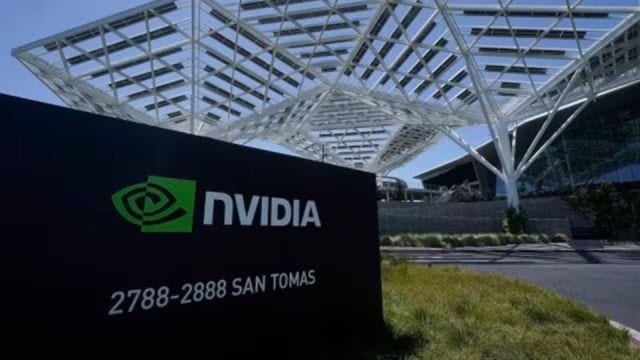© The Indian Express Pvt Ltd
Latest Comment
Post Comment
Read Comments
 If passed into law, the bill would enact new trade restrictions mandating exporters obtain licenses and approval for the shipments of silicon exceeding certain performance caps.(File Photo)
If passed into law, the bill would enact new trade restrictions mandating exporters obtain licenses and approval for the shipments of silicon exceeding certain performance caps.(File Photo)Chip major Nvidia said it would produce artificial intelligence (AI) supercomputers entirely in the United States, a day after President Donald Trump said he would soon impose tariffs on semiconductors imported from elsewhere. It makes Nvidia the latest tech company to back Trump’s tariff-induced push for local manufacturing.
“Together with leading manufacturing partners, the company has commissioned more than a million square feet of manufacturing space to build and test Nvidia Blackwell chips in Arizona and AI supercomputers in Texas,” the company said in a press statement.
Its Blackwell chips have started production at the Phoenix plant of Taiwan Semiconductor Manufacturing Company (TSMC), Nvidia said, adding that it is building supercomputer manufacturing plants in Texas, with Foxconn in Houston and with Wistron in Dallas. Mass production at both plants is expected to ramp up in the next 12-15 months.
“The AI chip and supercomputer supply chain is complex and demands the most advanced manufacturing, packaging, assembly and test technologies. Nvidia is partnering with Amkor and SPIL for packaging and testing operations in Arizona,” the company said.
Within the next four years, NVIDIA plans to produce up to half a trillion dollars of AI infrastructure in the United States through partnerships with TSMC, Foxconn, Wistron, Amkor and SPIL.
“Manufacturing Nvidia AI chips and supercomputers for American AI factories is expected to create hundreds of thousands of jobs and drive trillions of dollars in economic security over the coming decades,” it added.
“The engines of the world’s AI infrastructure are being built in the United States for the first time,” said Jensen Huang, founder and CEO of Nvidia. “Adding American manufacturing helps us better meet the incredible and growing demand for AI chips and supercomputers, strengthens our supply chain and boosts our resiliency.”
Last week, the US administration exempted smartphones, computers and memory chips, among others, from the tariff regime, fueling speculation that the US might temper its overall strategy. However, hours later, Trump said that tariffs on semiconductors would be announced soon and that the exemptions may not be permanent, signalling that any relief might be temporary.
The US has also initiated a national security investigation into the imports of semiconductors and semiconductor manufacturing equipment. As per an unpublished version of the investigation, the probe would cover, among other things, semiconductor substrates and bare wafers, legacy chips, leading-edge chips, microelectronics, and SME components.


